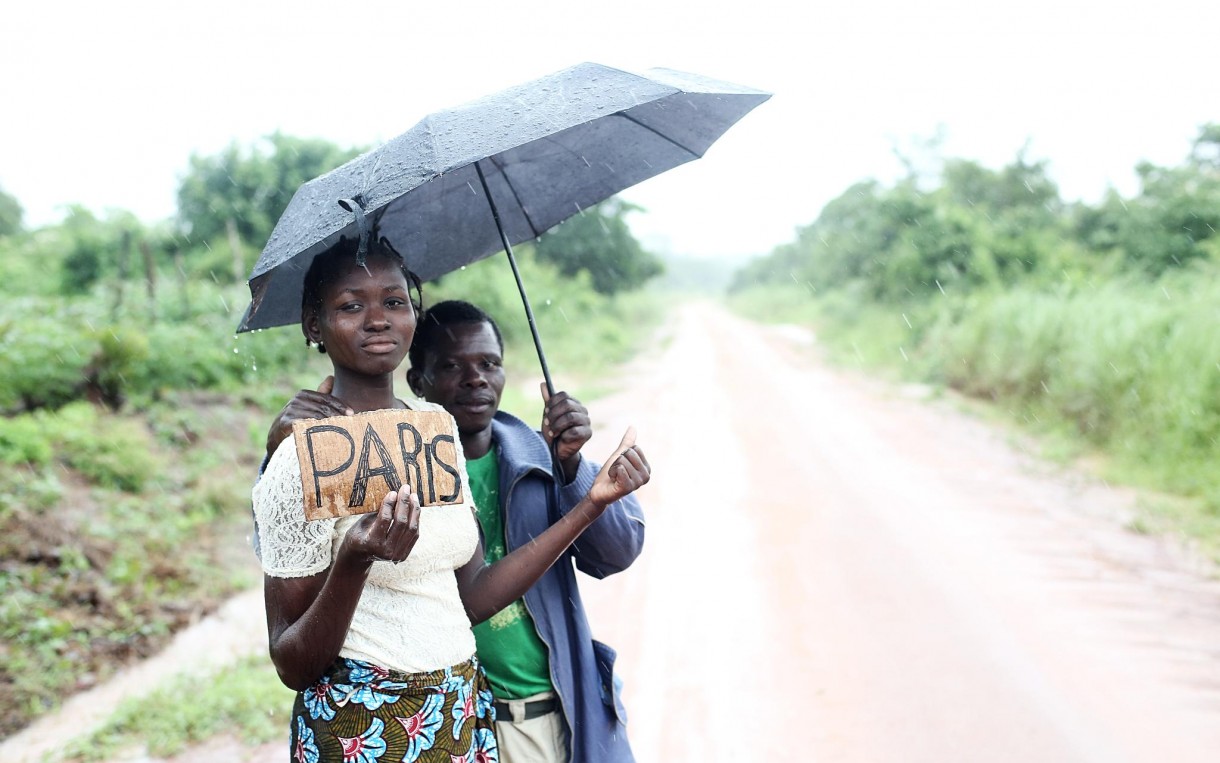Will Businesses ‘Walk the Walk’ and “Talk the Walk” on the Road to Paris?
 Business leaders meeting in Paris have the power to show they will listen to those who are least to blame yet most affected by climate change, like Anastacia Antonia, a 22-year-old farmer from Mozambique. She told Oxfam that the temperature is changing and there are more extreme changes in the rainy and dry seasons where she lives. Rainy seasons are getting longer and the dry seasons shorter. Photo: Mario Macilau/Oxfam Novib.
Business leaders meeting in Paris have the power to show they will listen to those who are least to blame yet most affected by climate change, like Anastacia Antonia, a 22-year-old farmer from Mozambique. She told Oxfam that the temperature is changing and there are more extreme changes in the rainy and dry seasons where she lives. Rainy seasons are getting longer and the dry seasons shorter. Photo: Mario Macilau/Oxfam Novib.
Will companies actually stand up and make broad commitments at the Business & Climate Summit in Paris this week?
This year is crucial when it comes to tackling climate change as world leaders will be meeting in Paris in December to negotiate how those emitting the most carbon will stand by those that are most vulnerable to climate change. In the lead up to those negotiations, major multi-national companies will come together this week to discuss climate change at a Business Summit in Paris. The Business & Climate Summit “provides a unique forum for business and government leaders to demonstrate bold action, adopt forward-looking strategies and call for ambitious policies that will allow us to scale up solutions,” according to its website. But will companies actually stand up and make tangible commitments?
It is more urgent than ever for business to make it clear to governments that it is in the commercial interests of many of them, as well as the in the interests of those living in poverty and the planet itself, to make ambitious commitments. This is particularly true for the food and beverage sector. Last year, Oxfam called on food and beverage companies to step off the sidelines and start playing ball when it comes to climate change. After all, this sector is at extreme risk of climate impacts. Every day there is news of how climate change is wreaking havoc on our food like tea, coffee, cocoa, dairy, coconuts, and bananas, to name a few. Recently I met a dairy farmer in Kenya, Rose, she told me “the weather has changed tremendously. This place used to have plenty of rain. Almost throughout the year we had rain here. There was no problem with fodder.” In one of the droughts she lost 2 of her 5 cows. Dairy farming was how she supported her family.
The irony is that the way we grow our food also contributes to climate change. Two companies – General Mills and Kellogg – took up our challenge last year to reduce their agricultural emissions across their supply chains. We would like to see more companies make similar commitments.
But reducing their emissions is only one step towards the Road to Paris. The second step must be supporting the farmers like Rose that not only take on the climate risks of the food sector in a disproportionate way, but reap the least amount from the prices of the commodities they grow. Economic resilience is a key part of the equation for reducing farmer vulnerability to climate impacts, but companies must also accelerate the sharing and investing in innovations related to adaptation strategies for those farmers.
Finally, once they have credibly “walked the walk”, food and beverage companies need to “talk the walk” – by sounding the alarm for the future of food security and for their own survival. This includes being a public champion and a strong advocate toward key national governments for a fair and binding climate treaty in Paris, robust financing for adaptation and calling out other industries, including the fossil fuel sector, to stop blocking any efforts towards these accomplishments. Some of the food and beverage companies have been leaders on this front and have been the driving force behind statements made coalitions such as BICEP, The Corporate Leaders Group and the Consumer Goods Forum, but more can be done by those leaders and the laggards must catch up.
So will the food and beverage companies step up and make some concrete commitments? Look out for our next blog to find out.